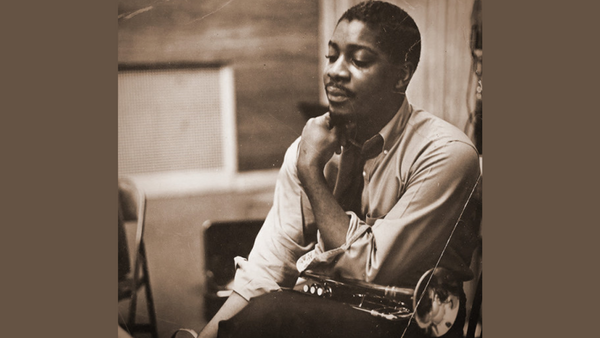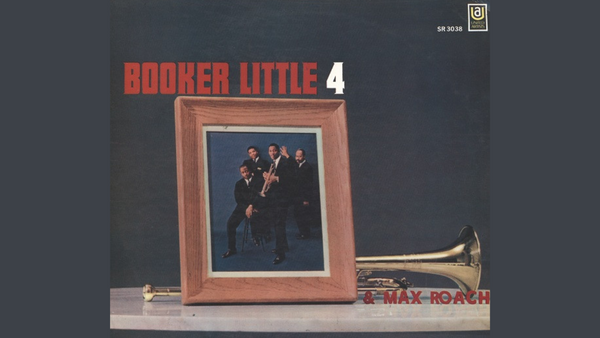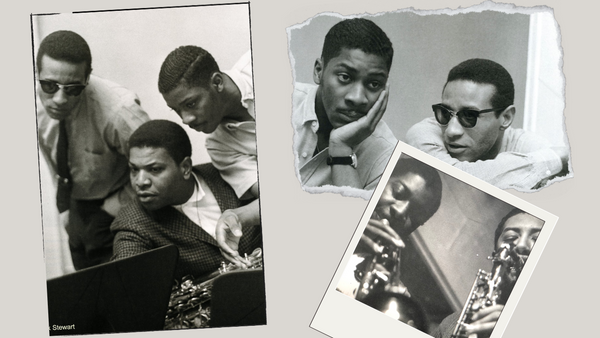Booker Little: Musical Career and Facts from Life
American jazz trumpeter and composer from Memphis, Tennessee, Booker Little has left a mark in the history of jazz scene of the late 1950s as one of the most promising musicians. His performance captivated listeners’ attention by a distinctive assertive sound and improvisations. Although his career didn’t last long, Little managed to make significant contributions with recordings full of great techniques and deep emotions. Let’s delve into some key moments of Booker’s life and career.
Booker Little’s Early Years
Booker Little was born into the family of musicians. His father played a trombone, and his mother was a church organist. Surrounded by music from the early years, he naturally stated showing interest in it too. Booker began his musical journey from playing a trombone like a father, then he switched to a clarinet, and later he started to play a trumpet and quickly mastered this instrument.
He refined his skills of playing trumpet in Manassas High School. His native place provided enough opportunities for him to develop as a musician. He regularly appeared on the Memphis jazz scene, playing with the Newborn brothers, saxophonist George Coleman, pianist Phineas and guitarist Calvin.

After he had finished the school, he moved to Chicago, where he entered the Chicago Conservatory. Apart from the trumpet, he also studied composition, theory, and orchestration. During his first student’s years, he met Sonny Rollins, with whom they were at the Young Men’s Christian Association. Rollins became the person who inspired Little to not imitate other performers but seek for his own sound.
Booker Little’s Musical Career, First Recordings
Spending time with Rollins opened new opportunities for Little. At his recording session, he met a drummer Max Roach, whose band Max Roach + 4 Little joined as a trumpet player. He spent eight months in that band, however it was challenging for him to balance between study and performances, so he took a short break from the band until his graduation.

Little’s first recording was on Max Roach + 4 album “On the Chicago Scene” (1958), where he featured a ballad piece "My Old Flame”. Together with Max Roach + 4, Little recorded two other albums: at "Minor Mode" he presented his own composition and at "A Night in Tunisia" Little appeared as the main soloist. Collaborating with Max Roach + 4, Booker had a chance to display his arranging skills and achieve a sophisticated musicality. Together with them, he also participated in ABC's Stars of Jazz television program.
During 1959 -1960, Little was mostly engaged in freelancing, performing with different musicians, however, he collaborated with Roach on several occasions, contributing to drummer's albums “The Many Sides of Max”, “The Complete Mercury Max Roach Plus Four Sessions”, “We Insist! Max Roach's Freedom Now Suite”. The music Little played with Roach hold a significant place in his recorded legacy. Little also took part in recording the tracks of Young Men From Memphis reunion album “Down Home Reunion”, which was influenced by blues.
Booker Little’s Success and Final Years
Little rejoined Max Roach Four in 1960, but this time he took on a greater responsibility, working as a music director and composer. Then he met the multi-instrumental reed and flute player Eric Dolphy, with whom they managed to create new sound. They recorded “Far Cry” where Little played the trumpet. During this period Little also released his third album “Out Front”, full of dissonant harmonies, tempo shifts, and improvised parts. His last album with Roach was recorded in August 1961, called “Percussion Bitter Sweet” and that year he also recorded his own album called “Booker Little and Friend”.

During this time, he collaborated with trumpeter Freddie Hubbard, alto saxophonist Frank Strozier, trombonist Slide Hampton, jazz musician and composer Teddy Charles, contributing his unique sound to their music.
Booker Little's career was cut short by his death due to complications from a kidney ailment, in 1961, at the age of 23.
Conclusion
Booker Little spent a very little time in the spotlight, however his recordings still draw attention of musicians with their innovations and technical prowess. Regardless of challenges in music, Little’s performance never lacked deep emotional expression.
If you’re interested in other musicians, check out our articles about Clark Terry, Louis Armstrong, Miles Davis, Dizzy Gillespie, Lee Morgan, Arturo Sandoval, and others.

